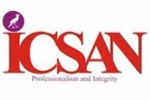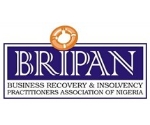The 5 Popular Tax Exemption Options Applicable for Companies in Nigeria
The payment of taxes is a statutory responsibility for businesses in Nigeria. This obligation is statutory as it is imposed by law and the failure to comply could be met with applicable sanctions which may include fines and a term of imprisonment in severe tax evasion cases.
The imprisonment term may be imposed on the directors who are responsible for the day-to-day management of the company. The primary legislation that imposes tax obligations on companies in Nigeria is the Companies Income Tax Act 2007.
The applicable taxes for businesses under this law are determined by turnover. Large businesses with a turnover of N100million and above are charged 30% of the profit as tax.
Medium size businesses with an annual turnover margin of over N25million but below N100milion are charged 20% of the profit margin.
The primary legislation that imposes tax obligations on companies in Nigeria is the Companies Income Tax Act 2007. The applicable taxes for businesses under this law are determined by turnover.
Large businesses with a turnover of N100million and above are charged 30% of the profit as tax. Medium size businesses with an annual turnover margin of over N25million but below N100milion are charged 20% of the profit margin.
The Federal Government, in a bid to promote the business clime to make it a desirable investment destination for investors passed into law certain legislations to relax some of these tax obligations placed on businesses in Nigeria.
Some of these legislations that provide tax exemptions for businesses are examined below.
For the purposes of this article, the word “businesses” has the same meaning as the word “company” as defined by law.
Exemption from Payment of Companies Income Tax for Small Businesses
The Companies Income Tax Act 2007 is the primary legislation which imposes tax obligations on businesses in Nigeria. As already examined, this law places a tax obligation ranging from 30% to 20% of the total profit of businesses depending on the annual turnover.
In a bid to promote the ease of doing business in Nigeria, the Finance Act 2019 was passed into law.
This piece of legislation amended the Companies Income Tax Act to exclude small businesses with a turnover not exceeding N25million from payment of Companies Income Tax.
Therefore, small businesses with this turnover margin are exempted from payment of Companies Income Tax in Nigeria. Small businesses in Nigeria are businesses having an annual turnover which does not exceed N25million.
Exemption from Payment of the Mandatory Tertiary Education Tax
The Tertiary Education Trust Fund (Establishment Etc.,) Act, 2011 places a tax obligation of 2% of the profit of businesses in Nigeria to be paid as tertiary education tax.
Following the passage into law of the Finance Act 2020 (as amended), small businesses are again exempted from payment of the mandatory tertiary education tax which is applied by the government to co-fund tertiary education in Nigeria.
Exemption Under the Pioneer Industry
Businesses operating in an industry designated by law as a pioneer industry are exempted from payment of tax for their formative years. This is to enable these businesses reinvest their profit to develop such pioneer industry.
Nigeria currently has approximately 71 (seventy-one) pioneer industries. Some of these pioneer industries include agriculture, mining and quarrying, manufacturing, electricity and gas supply, construction, trade, information, and communication.
A detailed breakdown of these industries is provided in the Nigerian Investment Promotion Commission (NIPC) website using the url https://www.nipc.gov.ng/.
This resource is useful for businesses exploring the possibility of a tax exemption for businesses in pioneer industries. The NIPC is the government agency saddled with the responsibility of granting this tax exemption to businesses.
The pioneer industry tax exemption is only applicable for a period of (5) five years through the grant of an initial period of 3 (three) years with a 1 (one) year renewal and another 1 (one) year additional renewal.
Exemption from Payment of the Industrial Training Fund Tax
The Business Facilitation Act 2023 (“Act”) which, just like the name suggests was enacted to promote the ease of doing business in Nigeria, equally has embedded in it, various tax exemptions for businesses.
The Industrial Training Fund Act, 2011, places a tax obligation of 1% of the annual payroll of a business to be paid as the industrial training fund tax for businesses with 5 (five) or more employees. However, the Act has now relaxed this obligation by exempting businesses with less than 25 (employees) from payment of this tax.
Therefore, this tax is only applicable to businesses with 25 (twenty-five) employees and more.
Exemption for Businesses Operating in the Free Trade Zones
The free zone is any geographical designated area deemed to be outside the customs territory within which national regulations as to production, trade and other economic activities partially applies or may not apply at all. In other countries, it is usually designated as Special Economic Zone, Industrial Development Zone, Export Processing Zone, Enterprise Zone, and Foreign Trade Zone.
A Free Trade Zone can be operated by the public or private sector or a combination of both the public and private sector as a public private partnership (PPP).
Nigeria currently has an estimated 42 (forty-two) free zones spread across the country which includes the Calabar Free Trade Zone, Lekki Free Zone, Kano Free Zone and Lagos Free Trade Zone.
In Nigeria, just as it is applicable in other countries, businesses operating in the free zone are exempted from payment of the mandatory companies’ income tax and other applicable taxes.
In addition, businesses are equally granted duty free importation of raw materials, waiver on all import and export duties and the ability to repatriate all its capital and profit to a foreign destination.
Conclusion
There are several applicable tax exemptions in Nigeria which makes Nigeria an attractive investment destination for foreign businesses and already existing local businesses.
These exemptions, if properly harnessed by businesses could provide a leeway for businesses to trade and maximize profit.
Berkeley Legal is a dedicated leading full-service top business law firm in Lagos, Nigeria. We provide comprehensive and sophisticated range of specialized and personalized legal services that are designed to meet the various needs of a highly diversified local and international businesses.
If you would like to know more about the applicable tax exemption for businesses in Nigeria, please contact info@berkeleylp.com
The information provided in this article is for general informational purposes only and does not constitute legal advice.







